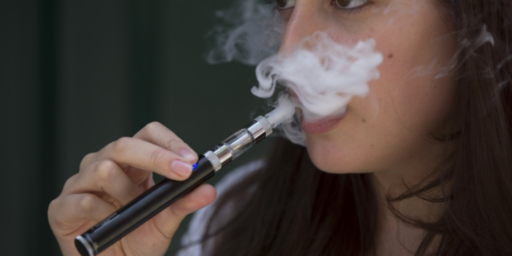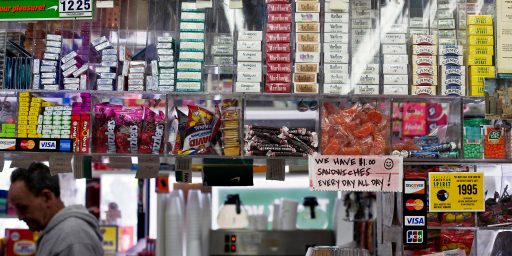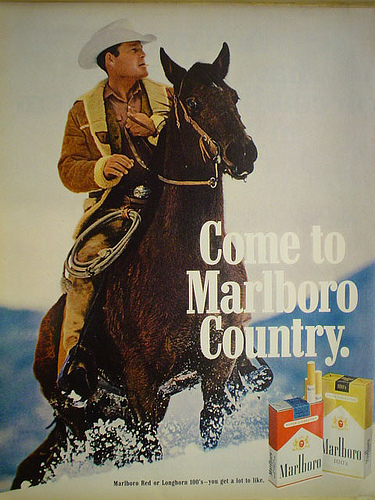Unintended Consequences
 It is a truism that well-intentioned attempts by government to curb bad behavior often spawn unforeseen and perhaps worse behavior.
It is a truism that well-intentioned attempts by government to curb bad behavior often spawn unforeseen and perhaps worse behavior.
A classic, recurring example of that is the now-35-year-old effort to curb the influence of campaign contributions on politics, which has spawned the use of PACs, 527 groups, and other insidious activities far more harmful than single wealthy individuals giving money to favored candidates. (Not to mention forcing politicians to spend most of their time raising money instead of doing their jobs.)
Remember Monday’s ruling in Caperton v. Massey Coal Company that “[e]lected judges must disqualify themselves from cases involving people who spent exceptionally large sums to put them on the bench”? I noted at the time that the vagueness of the ruling makes it impossible to know, a priori, where the line is drawn. Brendan Nyhan points to an even worse problem with the ruling that I suspect Justice Kennedy and his co-signers never contemplated:
Imagine that you are a business or individual want to influence a state supreme court and you have large amounts of money at your disposal. This ruling may prevent you from directly obtaining favorable rulings from justices you help elect in cases to which you are a party. But you can still help put someone on the court who is ideologically sympathetic to your beliefs. And if your preferred candidate loses, you can challenge the winning justice as biased against you and try to get them removed from any case to which you are a party. It’s a heads-I-win, tails-you-lose situation.
In a totally unrelated matter, Jacob Sullum notes a perverse effect of what seems to be inevitable: a law allowing the FDA to regulate tobacco products. Both the House and Senate versions are trying to grapple with an obvious consequence and trying to prevent tobacco companies from claiming that their products are regulated and therefore approved by the FDA.
FDA regulation of tobacco products is inherently misleading, promising safety improvements it won’t deliver. Even if the Senate version of this provision ends up in the final law, the FDA could still plausibly argue that a completely truthful statement such as “this product is regulated by the FDA” would “reasonably be expected to mislead consumers regarding the harmfulness of the product.” The plausibility of that argument reflects the ineffectiveness of FDA regulation, not the sneakiness of the tobacco companies.
It was one thing when tobacco labeling and advertising were regulated as simple commerce. But, naturally, if the Food and Drug Administration is signing off on the packing and allowing the product to be sold for public ingestion, it must be safe, right? I mean, the FDA isn’t in the business of allowing unsafe products to be sold, right? Conversely, doesn’t putting their stamp of approval on a product known for more than half a century to be dangerous if used as intended undermine public confidence in other drugs and foodstuffs?





I’ve heard they are going to make like half the package say “this will kill you.” You’d have to be a odd sort to take that as a secret message from the FDA that cigarettes are safe.
FWIW, I think the more interesting imlications are for things that have been on the market for so long that we accept their hidden risk.
Speaking of smoke, do you think smoked meats have lower cancer risk than boiled?
http://www.personalmd.com/news/a1999032206.shtml
“FDA regulation of tobacco products is inherently misleading, promising safety improvements it won’t deliver. Even if the Senate version of this provision ends up in the final law, the FDA could still plausibly argue that a completely truthful statement such as “this product is regulated by the FDA†would “reasonably be expected to mislead consumers regarding the harmfulness of the product.†The plausibility of that argument reflects the ineffectiveness of FDA regulation, not the sneakiness of the tobacco companies.”
I’m convinced that to many of the politicians who voted on the plan, this is a feature and not a bug. Just wait – in a few years we’ll be hearing them get all outraged over this and trumping it up as a reason why the FDA should get harsher and move Tobacco to a higher schedule drug and take it out of the moronic public’s hands.
This whole legislation has me feeling rather weird. On the one hand, I’ve always thought that alcohol and tobacco falling outside of FDA jurisdiction was rather idiotic. They’re drugs as much as any other. On the other hand, I’m sympathetic to the marijuana legalization movement and I think we’re wasting money controlling some of these things as tightly as we try to.
Ah well, our drug policy is already crazy. What’s another notch of craziness among friends?
I don’t follow this statement at all. Justices are biased simply because they aren’t your favorite?
I think there’s a massive leap-of-faith in this argument, and to be honest I’m not even sure if I’ve identified it yet. One would presumably have to show that a given justice is biased against you for some given reason. Is the reason for his/her bias due to the fact that you gave money to one of his/her opponents? That’s a big, big stretch to me.
If I recall correctly, James, you tend to be in favor of some sort of decriminalization and regulation of currently illicit drugs. Which organization would you suggest regulate them?
What if I made large contributions to the justices likely to vote against my case? Would they then be disqualified leading to a majority who might favor my claim? I could just poison those who might oppose my case.
In 2004, the seat in the Southern (upland south/blue dog) region of Illinois broke financial records as trial lawyers and insurance companies poured money into the seat. The justices raised $9.3 million, which doubled previous national campaign records. The insurance companies won, as more people in the area were concerned about loss of health care services attributed to malpractice/p.i. lawsuits.
The implication from this ruling to me is that whichever candidate won, the judge should not hear any tort cases as both judges received substantial contributions from the tort business. I think that’s an astounding result, essentially targeted at the very idea of political appointment of judges.
When I started law school, one of the first cases we covered in contracts was where a person signed a contract allowing a company to come onto his property, strip mine it and then restore the property. The company did this and then left the strip mine when it played out without restoring the land. The contract interpretations class went to the state supreme court where they found for the company. We then spent a couple of days discussing the state supreme court ruling in light of the contract wording. At the end of that time, the professor asked if it would help explain things if it turned out that a majority of the state supreme court justices were indicted for bribery a couple of years later.
I understand the motivation behind the ruling, but this is a good example of why you don’t want to legislate from the bench. The vagueness of the lines drawn is certainly one problem. Another problem is the game playing possibility that steve plunk raises in regards to poisoning the well. Combine that with bribery and you have a perfect system for thwarting justice. Any judge who won’t take a bribe you just make substantial campaign contributions to. Unless they return the contributions (how likely is that?), you then can ensure your case is heard by a sympathetic judge (aka one who took a bribe) because the others must recuse themselves.
The situation prior to the ruling had two checks in place. One was the state bar ethics (or judicial ethics depending on the state) that would have looked at the individual case to see if there was undue influence. Second, and more powerfully, imagine running against this judge. You point out the campaign contribution made, the ruling and then you say that justice would not be for sale if you were the judge. The voters then get to decide.
Wow. That cannot be allowed to happen. That’s one of the worst things I’ve ever heard. Or best, if you’re set to profit from tobacco sales.
I think there are a couple of additional checks: (1) multi-member panels. We keep focusing on the tie-breaking vote, but the litigants had to convince enough other members on the panel to get to that point; (2) appeals; I still think that if there were no law or facts supporting the result, the U.S. Supreme Court could have found some way to reverse on the merits without necessitating the creation of a federal recusal rule.
Joe,
Perhaps you should investigate how the democrats planned to pay for the expanded CHIP. Just a hint, if tobacco sales plummeted, so would the revenues to pay for CHIP.
One thing I didn’t know from the initial coverage of the Caperton case is that the judge only received a $1,000 contribution from a party, the statutory maximum. The rest of the money was contributed to independent political PACs that supported the campaign.
And like my Illinois situation, the plaintiff’s bar spent $2 million on a PAC organized in favor of the opposing candidate.
Jim, the Chicago way requires the donor have no choice but to contribute to the machine and never contribute to anyone but the machine. The FDA works for the Obi Iwon machine, just as Chicago regulators work for the Daley machine. This is a windfall for the machine.